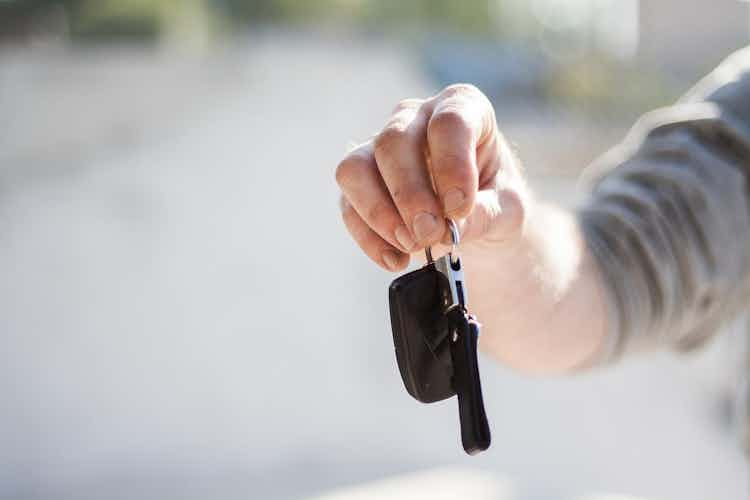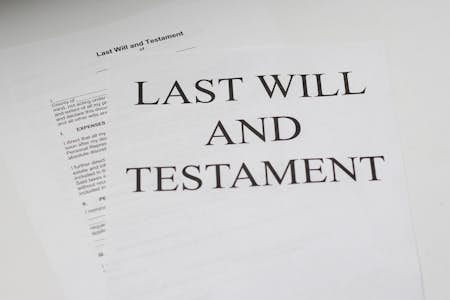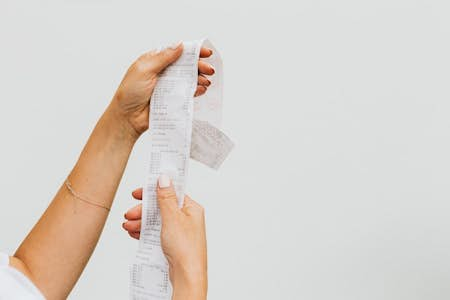Lenders always want to know how much of a risk a potential borrower is before parting with any money, whatever the cash is for. It makes sense to imagine a deal from their point of view. Looking at our own credit history, a good question to ask ourselves is ‘Would I lend money to this person to buy a car?’
How to check your credit score
It’s easy for lenders and borrowers to check a credit score and credit history online, and checking credit reports with the three main credit reference agencies shouldn't cost anything.
Everyone gets an overall three-digit score and a breakdown of lending commitments, bank accounts, missed payments and amounts owed. There may be some easy fixes to improve a score over a short period of time. For example, correcting mistakes, such as addressing history and ensuring there are no undesirable financial links to someone else. Breaking habits like taking cash out on a credit card or missing the occasional store card payment should increase a credit score over time.
Anyone who hasn’t managed credit well in the past, including rent and mortgages, will need to prove that more recent history demonstrates that they can be trusted with car finance.
Where to check a credit report
These websites allow borrowers to check their scores and credit history for free and offer advice on how to improve their creditworthiness.
- ClearScore for an Equifax credit file.
- MoneySavingExpert’s Credit Club for an Experian score and report.
- CreditKarma for a TransUnion credit report.
This is an easy way to monitor and improve credit ratings, ensuring that there is no last-minute panic about applying for credit. It’s not always easy to predict when a new car will be needed - better to avoid having to apply for finance with bad credit.
What causes a bad credit rating?
Some circumstances are beyond our control, and everyone occasionally makes a mistake with their finances. However, consistently unwise financial habits lead to a credit rating in the doldrums.
The most common reasons for a low credit score include:
- Repeatedly missing payments.
- Exceeding credit limits and only ever paying the minimum payment on credit cards.
- Previous loan defaults.
- Bankruptcy or other measures to deal with unmanageable debt, such as an individual voluntary arrangement (IVA), Debt Relief Order (DRO) or County Court Judgement (CCJ).
- Not having a credit history at all due to never having a credit card or taking out any kind of loan - usually only a problem for young people who’ve only just got their driving licence.
A bankruptcy, an IVA or DRO stays on a credit record for six years, but getting finance from specialist lenders is still possible after a year or two. So there is always hope for a driver with a Very Poor credit rating who really needs a new car.
Improving the odds of getting car finance with bad credit
Be prepared for rejection, but don’t give up. One lender might say no, but another might be willing to take a chance. However, it’s crucial to scrutinise the small print and understand the terms of any agreement, as some lenders will take advantage of applicants with a poor credit history.
The best finance deals, such as 0% interest, will only be available to drivers with a good or excellent credit rating, so applying for those would be a very long shot.
For a start, it's sensible to manage expectations and not go for a top-of-the-range sports car. A cheaper vehicle with low monthly repayments is a more appropriate choice for purchasing with a bad credit score.
Be wary of higher rates of interest. For example, a customer with a good credit rating might be offered a 6.9% APR while another customer with a poor credit score could be offered the same car with as much as 35.9% APR.
The effect of higher interest rates can be mitigated by paying a significantly larger deposit, well over 10%. Spreading the cost over a longer period of time will also lower monthly payments, although it would increase the total amount owed.
A friend or family member with a solid income and a good credit rating may be willing to act as a guarantor to ensure a better chance of accessing a car loan, perhaps at a more reasonable interest rate. Unfortunately, missed payments will affect a guarantor’s own credit rating.
The process of buying a car with bad credit
High street banks and other finance providers offer loans for purchasing cars. Most banks require the applicant to have an account with them. Banks set their own lending criteria for car finance, often including a minimum income and a minimum credit score. Alternatively, a bank may offer ‘personalised rates’, meaning those with a less favourable credit profile might pay more for a loan if accepted.
It’s unlikely that anyone with a poor credit rating will have enough space on their credit card for large purchases, but this could be one option for financing a car if other avenues are closed. There’s a chance a credit card may also have a lower rate of interest than a car loan.
When applying for credit directly from a car dealership, they should be able to prove FCA accreditation. Some car dealership finance plans involve borrowing money to buy a new or used car outright, but other forms of car finance may be more suitable with bad credit.
Alternative bad credit car finance
Available through dealerships or a car credit broker, some finance deals are less risky for lenders because they retain ownership of the vehicle until the money is paid in full. They will still perform a credit check. However, drivers with a low score but a stable income might have a good chance of acceptance.
Leasing
As with other forms of finance, you pay a deposit and monthly instalments. However, leasing is not buying because the driver never actually owns the car. One of the reasons this option is available for anyone with bad credit is that the dealer can retrieve the car at any time if payments stop. The monthly payments should also be less than for purchasing the same car.
Personal contract purchase
Similar to leasing, PCP keeps the car in the possession of the dealer, but at the end of the term, the driver has the option to pay a lump sum and keep the car, hand it back, or trade it in for another. Most new or nearly new cars are paid for through PCP.
Hire purchase
This simple plan works the same as for personal contract purchases, but there is no extra payment at the end and no mileage restrictions. Monthly payments will be a little higher.
These arrangements only work for those who can keep up regular payments and are capable of maintaining a car in good condition. For anyone who gets into difficulties further down the road, it’s possible to end the deal early.
Lenders specialising in car finance for poor credit
Car finance calculators from ChooseMyCar, and other similar providers, clearly demonstrate the difference between borrowing with an excellent credit score and a bad credit score. When borrowing the same amount, repaid over the same period, a person with bad credit could pay thousands more overall.
Bad credit car finance companies advise on eligibility and shop around a panel of lenders to get the best deal. They might offer a finance check (a soft credit check) to establish credit status first.
A soft search doesn’t show up on a credit file. When someone actually applies for a loan, the bank or finance company would do a hard search. Multiple failed applications for credit have a negative impact on credit scores, so it’s vital to proceed with the utmost caution before actually making an application for car finance. It’s so easy to get carried away when shopping online for major purchases like a car.
Understanding car finance interest
The representative APR will be advertised when browsing for a car finance deal. Bad credit history borrowers will be offered a higher interest rate than this. When entering into negotiations, we might discover that the representative example isn’t available to us and find out that the finance will cost much more than we originally thought. Although the Financial Conduct Authority has banned car finance brokers from earning commission on the interest, looking at the total cost of credit, it’s clear that someone will be making a decent profit while the car loses its value.
Lenders who specialise in car finance for poor credit will be able to talk through options. Then it's important to take stock and reflect before making a long-term financial commitment, especially for those who have struggled with paying back loans in the past.
Is it really necessary to get car finance?
If it’s essential to get a reliable vehicle for work, mobility or family reasons, an expensive payment plan may be the only way to achieve this. At least it’s possible to save on monthly outgoings by choosing an economical vehicle with low tax, insurance and maintenance costs. If income is steady and sufficient, taking out this kind of car finance might help improve a credit score if managed well.
Living in an area poorly served by public transport makes car ownership desirable. For most town and city residents, where public transport is acceptable, a car could be seen as a luxury.
Managing without a car for a few months is a great way to save money, improve fitness and save the environment, so it may be healthy not to rush into a decision about car finance.
Save for the next car
Without car finance, it’s more difficult to afford a newer model. Paying cash in the hundreds and driving a cheaper vehicle with an embarrassingly old registration number involves plenty of trips to the garage for repairs, and it may only last a year or two. However, this method of transportation could suit drivers who would struggle with monthly repayments, especially those of us who can manage without a car occasionally.
Getting a car loan in retirement
Although it’s perfectly possible for anyone with a driving licence to get finance for a car or a van after retirement, both lender and borrower should take income into consideration, even with a good credit rating. Many people in retirement have more secure bank balances than some people of working age, so a poor credit rating need not be a barrier to changing your car after retirement. Some lenders may set an upper age limit.
Perhaps it makes more sense to put the brakes on before taking out a car loan just before retirement, in case the repayments become a problem with a reduced income.
Buying an electric car with poor credit
The 2030 ban on the sale of new petrol and diesel cars is already leading to restrictions and added costs for drivers without an electric car, such as increased parking charges and ULEZ.
Applying for car finance, even with poor credit, might be the way to make the transition to an electric vehicle sooner rather than later, depending on affordability. A small amount of the cost of the loan would be offset with lower running costs and no road tax to pay. Furthermore, current scrappage and incentive schemes could be expanded as electric vehicles are set to become the norm.
Anyone with a low credit score is unlikely to be able to afford the perfect car, but a finance application to purchase a petrol or diesel car as they become a thing of the past may not be the right approach either. It could be worth exploring bad credit finance options for purchasing a used electric vehicle whilst continuing to work on that credit score.
Is it wise to get car finance with bad credit?
When bad credit is added to any other red flags, such as low income, or haphazard self-employment, less favourable terms may be applied for any finance agreement instead of an outright refusal.
If a car loan deal is really unfair and unaffordable, it’s better to walk away or get an Uber.
Image Credit: StockSnap at Pixabay





